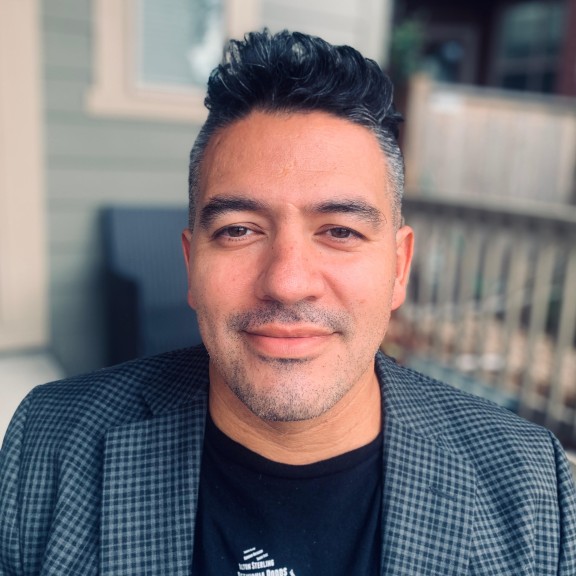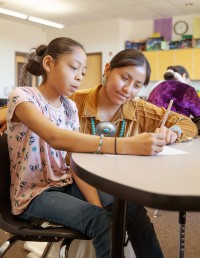Colorado Teacher of the Year Reflects on Centering Equity in Education
Learn more about Gerardo Muñoz & the Voices for Honest Education Fellowship
In partnership with the National Network of State Teachers of the Year (NNSTOY), the National Center for Youth Law launched the Voices for Honest Education fellowship in 2022 to preserve access, inclusion, and meaningful content for students across the country. Gerardo Muñoz, 2021 Colorado Teacher of the Year and a Denver Public Schools History Teacher, reflects on his experience as a Voices for Honest Education Fellow.
Q: Why did you choose to be a Voices for Honest Education Fellow?
A: Voices for Honest Education is an opportunity for me to speak, write, study, and advocate for the things that are center stage for me, like the incredible diversity of the US. I don’t have to find under the table ways to get things going. For example, when I would run professional development as a teacher, I would have to couch the thing I was passionate about in other things. If I was talking about discussion strategies, I would sneakily bring in rap lyrics and quotes from philosophers of color or from the global majority, not just the same Western thinkers. But I could never come out and say, “we need to center Black feminist epistemologies”.
To this point, my work has always been a question of “How do I compartmentalize the racialized nature of my work and put that aside when I need to?”. Voices for Honest Education has awarded me the opportunity to really dig in to claim that as my focus and center racial equity.
Q: What have you learned through the Voices for Honest Education Fellowship?
A: Voices for Honest Education has given me a chance to deepen my understanding of the policy imperative when it comes to honest education and anti-racist, anti-oppressive systems and structures. Policy intimidated me as a teacher. It never felt accessible to me. Now, I feel conversant and comfortable in having policy conversations in a way I hadn’t before.
I don’t think we have enough teachers in important spaces, especially policy spaces which are difficult to access, often by design. Knowing that the policy conversation doesn’t lend itself to practitioners and accessibility, it’s important to help teachers to feel empowered to enter the policy conversation. I’m grateful that this fellowship has given me the opportunity to strengthen this skill.
Q: How does your experience as a teacher shape your work as a fellow?
A: As a teacher, if I encounter someone who is opposing of honest education – especially when it comes to LGBTQIA+ folks, racialized, minoritized, and marginalized people – my assumption is that they are just lacking knowledge. I know that most people have a heart. So the question is really, “How do I guide this person in a way that they can understand the humanity of other people”, as opposed to just writing them off. Ultimately, everything is teaching and learning. Sometimes we teach. Sometimes we learn. Sometimes we learn by teaching.






